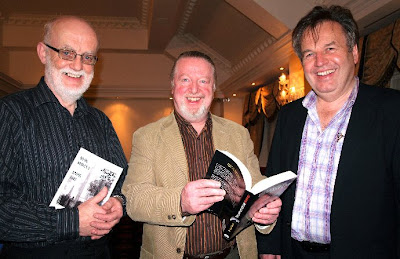
What is it about having a skip in your driveway that makes you consider life and the accumulation of goods? Or is it only me who thinks "Lets clear the clutter and fill the skip". Our road had a number of skips last week, some kind of clearing coincidence not unconnected with the season no doubt.
Ours was half filled with broken tiles, smashed plywood, odds and ends of delf and a smashed up dresser or kitchen unit as we used to call such items. We did invite the neighbours to add their rubbish as well and they did. There should be a communal element to such a traumatic celebration as skip filling. I'm sure anthropologists could tell us of remote communities still bound by the niceties of good neighbourliness who make the filling of a skip a week-long local festival with much sharing - drink, home baking, singing and dancing.
The most difficult decisions are not the large items. Yes the dresser had to go, the tiles obviously also but that cup that was all the remained of the dinner service we got as a wedding present from a long deceased aunt and uncle - that can be difficult to finally jettison. And what about the assorted remains of the various sets of crockery we bought over the last quarter century, must they go? Yes they must!































